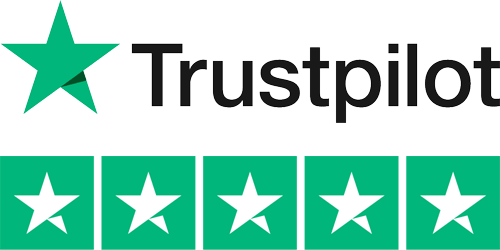Increase your online visibility to boost your sales by up to 30%+ per year. 📈
Get to the top spot in Google without breaking the bank!
How Can Small Businesses Compete Successfully with Larger Businesses (SEO Focus)
 Competing with larger businesses can feel daunting for small companies, especially when it comes to standing out in the vast digital marketplace.
Competing with larger businesses can feel daunting for small companies, especially when it comes to standing out in the vast digital marketplace.
Fortunately, search engine optimization (SEO) provides an even playing field. With strategic SEO, small businesses can reach the right audiences, drive high-quality traffic, and even outrank their bigger competitors in specific niches.
This article will guide you through essential SEO strategies that small businesses can leverage to build their online presence, attract customers, and stay competitive.
1. Focus on Niche Targeting
Define a Clear Niche Market
The advantage of being a small business is the flexibility to specialize. Larger businesses often cater to a broad audience, but a small business can succeed by focusing on a specific niche. Instead of attempting to rank for highly competitive keywords, target niche markets and audience segments where there’s less competition but high relevance.
Localize SEO Efforts
One of the most effective ways to compete with large businesses is through localized SEO. Targeting location-based keywords like “pet grooming in [City]” helps capture local audiences who are more likely to convert. Optimizing for local SEO not only narrows down your audience to those nearby but also enables you to appear in local searches and Google Maps results, which are prime real estate for potential customers looking for nearby solutions.
Long-Tail Keywords Strategy
Long-tail keywords—phrases that contain three or more words and are specific—often have lower search volume but higher intent. For example, instead of “buy shoes,” a small business could target “buy vegan leather shoes in [City].” Tools like Google Keyword Planner or Ubersuggest can help identify long-tail keywords that match your niche, enabling your small business to attract highly targeted traffic without competing with big brands for high-volume keywords.
2. Prioritize Quality Content Over Quantity
Create In-Depth, High-Quality Content
In-depth, authoritative content is a key factor in search rankings. By creating comprehensive guides, how-to articles, or expert insights, small businesses can showcase expertise and build credibility with their audience. High-quality content that thoroughly answers questions or addresses problems specific to your niche can rank well and keep audiences engaged.
Leverage Content Types that Highlight Expertise
Establishing expertise is critical for SEO. Including testimonials, case studies, and customer success stories demonstrates your business’s unique value. Not only does this content build trust, but it also provides SEO-friendly content that differentiates your business from larger competitors.
Optimize for Search Intent
Understanding the search intent—the reason behind a user’s search—enables you to tailor content to what your audience is actually looking for. Small businesses can align their content to satisfy searchers’ intent, whether it’s informational, navigational, or transactional, which helps pages rank better and provides a better user experience.
3. Build a Strong Local Presence
Google My Business Optimization
Google My Business (GMB) is essential for local SEO. Claiming and optimizing your GMB profile with accurate business information, hours, photos, and customer reviews increases visibility for local searches. Make sure your business category, address, phone number, and website are consistent and up-to-date to appear in local packs and Maps.
Leverage Local Reviews
Positive reviews not only boost customer trust but are also a local ranking factor. Encourage satisfied customers to leave reviews on GMB and other review sites. Responding to reviews, both positive and negative, shows that your business values customer feedback, improving both rankings and customer loyalty.
Local Link Building
Earning backlinks from reputable local sources, such as local newspapers, community websites, or chambers of commerce, enhances your local authority. Reach out to local bloggers, collaborate with nearby businesses, or sponsor local events to build local links. This boosts your visibility in local searches and strengthens your site’s authority.
4. Maximize Website User Experience (UX)
Prioritize Mobile Optimization
With over half of all online searches happening on mobile devices, a responsive, mobile-friendly website is crucial. Google uses mobile-first indexing, so optimizing for mobile UX directly affects rankings. Use a responsive design, ensure clickable elements are easily accessible, and check that content displays correctly on all screen sizes.
Improve Page Load Speed
A slow website frustrates users and increases bounce rates, impacting SEO. Tools like Google PageSpeed Insights or GTmetrix help identify areas to optimize. Minimizing image sizes, reducing server response time, and enabling browser caching can improve load speed, which is beneficial for user experience and SEO.
Enhance On-Site Navigation
A clear, easy-to-navigate website structure not only helps users find information but also helps search engines index your content. Ensure users can reach important pages in just a few clicks, and use descriptive headings to guide them through your content. A straightforward structure improves user experience and reduces bounce rates.
5. Use Content Marketing and Social Media as Amplifiers
Engage Through Social Media
Social media platforms allow small businesses to connect directly with audiences, fostering loyalty and driving traffic to their website. Share blog posts, updates, and engage with followers regularly. Social media engagement, though not a direct ranking factor, amplifies content visibility and helps bring in valuable traffic that may contribute to better rankings.
Content Promotion and Repurposing
Repurpose content into various formats like videos, infographics, or social media posts to reach different audiences. For instance, a blog post can be turned into an email newsletter, a short video, or a series of social media posts. By maximizing each piece of content, you increase your chances of reaching new audiences without creating entirely new content.
Create Shareable Content
Crafting content that’s highly shareable, like listicles, guides, or infographics, increases visibility across social channels and can attract backlinks. Encouraging readers to share content expands its reach and boosts traffic, indirectly benefiting your SEO efforts.
6. Implement Technical SEO Essentials
Optimize Site Structure and URL Hierarchies
Search engines prioritize sites with clear, logical structures. A well-organized site with descriptive URLs helps search engines understand and index your pages. Categories, subcategories, and simple URLs make it easier for users to navigate, while breadcrumbs and structured data improve usability and SEO.
Focus on Core Web Vitals
Core Web Vitals—metrics related to loading speed, interactivity, and visual stability—are part of Google’s ranking factors. Improving these metrics by optimizing images, reducing JavaScript, and minimizing layout shifts leads to better rankings and user experience.
Ensure Mobile-Friendliness and Secure HTTPS
Mobile optimization and HTTPS security are crucial for rankings and user trust. Switching to HTTPS (if you haven’t) signals to search engines that your site is secure. Google favors HTTPS sites, and users are more likely to trust and stay on a secure website.
7. Establish Strategic Partnerships and Networking
Build Local Partnerships for Backlinks
Collaborating with local businesses, nonprofits, or influencers can provide valuable backlinks and visibility. These partnerships support brand authority and help bring in traffic from local audiences. Engaging in community projects or sponsorships can also foster local recognition and backlinks.
Collaborate with Micro-Influencers
Working with micro-influencers who have a strong following in your niche helps reach target audiences. Since they’re likely to have high engagement, partnering with them for product reviews or features can drive quality traffic and contribute to your SEO.
Guest Posting on Relevant Industry Sites
Guest posting on industry-related blogs or local sites boosts visibility and backlinks. Seek out opportunities on reputable sites that have audiences similar to yours to attract high-quality traffic and improve rankings.
8. Monitor and Adapt with SEO Analytics
Track Key SEO Metrics
Use tools like Google Analytics and Google Search Console to track essential SEO metrics such as organic traffic, click-through rates, and bounce rates. Tracking metrics helps you understand what’s working and where there’s room for improvement.
Adjust SEO Strategy Based on Data
Analyzing your performance data allows you to fine-tune strategies. If certain keywords or content types are underperforming, adjusting your focus based on data-driven insights can yield better results over time.
Stay Updated on SEO Trends
The SEO landscape is constantly changing, with new algorithm updates and search trends. Staying informed on SEO trends ensures your strategy remains competitive and aligned with the latest best practices.
Conclusion
By leveraging the power of SEO, small businesses can compete effectively with larger brands online. Through niche targeting, local optimization, quality content, and consistent improvements to UX, small businesses can build authority and attract the right audience. Although it may take time to see results, these strategies offer a sustainable path for growth and long-term success. With a focused, adaptable approach to SEO, even the smallest business can create a meaningful presence and attract loyal customers.
The Importance of Hiring an SEO Expert
While these strategies can significantly boost a small business's online presence, SEO is a dynamic and complex field that requires constant attention and expertise to see real results. Working with an SEO expert ensures that your business stays aligned with the latest industry practices and algorithm changes, allowing you to focus on your business while we handle the technical details of your SEO. Our tailored affordable SEO packages, starting at an €500 per month, are designed to fit the unique needs of small businesses, providing comprehensive support to help you compete effectively with larger companies. Get in touch to learn how we can elevate your online presence and drive real growth for your business!
Share this:
- Click to share on X (Opens in new window) X
- Click to share on Facebook (Opens in new window) Facebook
- Click to share on LinkedIn (Opens in new window) LinkedIn
- Click to share on Reddit (Opens in new window) Reddit
- Click to share on Tumblr (Opens in new window) Tumblr
- Click to share on Pinterest (Opens in new window) Pinterest


Leave a Comment